There are very few medications that you can use to treat Hashimoto’s thyroiditis and LDN is one of those medicines.
But how does it work? Will it work for you? Is it safe to use? And, if so, how should you dose it?
We are going to explore all of these questions and more.
I’ve been using LDN for several years with great success and the goal of this article is to share what I’ve learned through the years so that you can determine if LDN is worth using in your situation.
LDN 101
If you aren’t familiar with LDN let me fill you in really quickly.
LDN is a prescription medication that stands for low-dose naltrexone.
It’s a prescription medication that is often used off-label to treat the autoimmune disease Hashimoto’s thyroiditis.
LDN probably works by stimulating the release of endorphins which then impact your immune system and help to balance or regulate autoimmune activity.
It also seems to have positive effects on other hormone systems such as insulin and can also help reduce inflammation.
The exact mechanism of action is actually not well understood, so we are not going to focus on it for this discussion.
The important thing to know here is that LDN is one of the only prescription medications that can be used to treat Hashimoto’s.
It would be one thing if LDN was one of many potential options that Hashimoto’s patients have at their disposal but this isn’t true.
At the time of this writing, there are zero FDA-approved medications for Hashimoto’s thyroiditis which means the standard of care (standard treatment option) is to wait and see.
The wait-and-see approach (1) involves waiting until your own body destroys a sufficient amount of your thyroid gland that you then require taking thyroid medication.

LDN serves an important purpose:
To try and reduce the autoimmune destruction on your thyroid gland, to help reduce systemic inflammation (2), to help re-educate your immune system (3), and to help naturally improve thyroid function in your body.
And, while it is becoming more and more accepted that LDN can potentially help with these things, there are very few clinical studies (if any) that show that LDN is effective specifically for Hashimoto’s thyroiditis.
There are, however, other studies that show that it can be effective in treating OTHER autoimmune diseases such as Crohn’s disease (4).
Drawing from this evidence, it’s plausible that LDN can ALSO help with Hashimoto’s, even if no such studies exist that prove this claim.
Indeed, my clinical experience (I’ve used LDN for many years on many patients) suggests that it can be effective for thyroid patients and for those with Hashimoto’s.
With this in mind, let’s talk more about the specifics of using this medicine.
Will LDN Help Reduce Thyroid Antibodies?
Because Hashimoto’s is an autoimmune disease and because it is felt that the antibodies in these types of diseases do damage to the body, people often pay very close attention to their absolute antibody level.
What they don’t always appreciate, though, is that the severity of autoimmune disease (especially for Hashimoto’s) doesn’t always correlate with these antibody levels.
Does that mean that you should ignore your antibody levels?
No, but it does mean that you shouldn’t judge whether or not LDN is working based on these levels.
If you are new to Hashimoto’s, the antibodies we are talking about are called TPO antibodies (thyroid peroxidase antibodies) and TgAB (thyroglobulin antibodies) and these are the antibodies that your immune system creates that cause issues for your thyroid.
Both of these antibody levels can be measured in the serum and tracked and the presence of these antibodies (if also combined with abnormal thyroid lab tests or hypothyroid symptoms) can help make the diagnosis of Hashimoto’s thyroiditis.
The point I am trying to make here is this:
It’s possible for you to use LDN and for it to be effective without it also lowering your antibody levels.
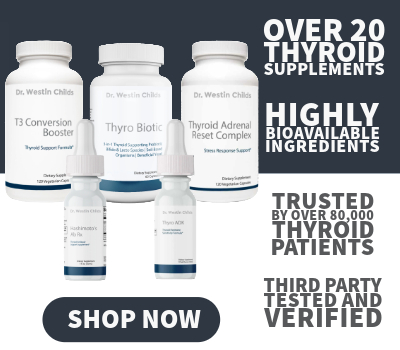
I still think it’s a good idea for you to continually check your antibodies as a way to monitor your lab tests and your progress, but don’t use your antibodies as a metric as to whether or not the medication is working.
You may find that as you take LDN your antibody levels decrease and you feel markedly better.
Some people may find, however, that their antibody levels stay the same or increase, and yet their symptoms have improved dramatically.
The medication is probably still working in both scenarios but through different mechanisms.
How to Dose LDN
LDN is called low-dose naltrexone for a reason and that reason has to do with how it is dosed.
The “standard” doses for Naltrexone are typically as high as 50mg per day.
In addition, the standard tablets come in 50mg doses (5).
But when we are talking about LDN we are talking about much lower doses than this.
Typical doses for LDN range from 1.5mg to 4.5mg per day which is about 11 to 33 times lower than these standard doses.
Because of this, you will most likely need to get your LDN compounded from a compounding pharmacy.
It’s possible to use the standard 50mg tablets, but it’s not easy to try and break those tablets up to the small doses that are necessary.
There are many ways to dose LDN, but I will give you what I think works bests:
- Start with 1.5mg per day for 15 to 30 days
- After 15-30 days increase up to 3.0mg only if you are not experiencing negative side effects and if you have not noticed a positive improvement
- After another 15-30 days (depending on sensitivity), increase up to 4.5mg per day (but only if you are not experiencing any negative side effects or the desired positive outcome)
This slow titration schedule allows you to slowly increase your dose over a period of time while reducing the chance of negative side effects.
*Note: there are many other ways to dose LDN and I am just sharing what I believe is the most effective based on my own experience. You might, however, find that some doctors start you right away at 4.5mg or accelerate the titration schedule.
Side Effects of LDN
Like any medication, LDN can have both positive and negative side effects.
I find that most people who use LDN experience either positive side effects (the things you want to happen) or simply no reaction at all (which is better than having a negative reaction).
Having said that, though, there are some people who do experience side effects which would be considered ‘negative’ even though they are typically rare.
The most common side effect that I see is insomnia, which can be solved by changing the time of day that you take the medication.
Some people also experience changes in their dreams (especially if they take it at night). For the most part, these are not necessarily negative but they can be.
Rarely, do I also see some people suffer from nausea and headaches (but these are quite uncommon).
Further potential side effects of LDN (both good and bad) include:
- Improved sleep
- Insomnia (it can either help or harm your sleep)
- Weight loss
- Reduction in inflammation
- Reduced joint pain (6)
- Improved blood sugar
- Nausea
- Headaches
- Vivid dreams
Compared to most medications, this list is actually quite mild.
Don’t let the potential side effects of using LDN stop you because most people do very well when taking it.
Studies also confirm that this medication is quite safe and well-tolerated (7).
What to Expect When Using LDN
Will using LDN be a slam dunk for you and your Hashimoto’s?
The answer is maybe, but you shouldn’t walk into therapy expecting this medication to be a miracle drug or something that will completely turn around your disease state.
While it is true that this sometimes happens, it’s been my experience that this type of response is actually quite rare.
Perhaps 2-5% of people who use LDN will see a vast improvement in their symptoms over a short period of time.
Then there is another 40-60% or so who will see definite improvement but this improvement will be gradual and appear slowly over a several-month period.
Then there is another large group, perhaps close to 40%, who will not experience any noticeable improvement in their symptoms at all.
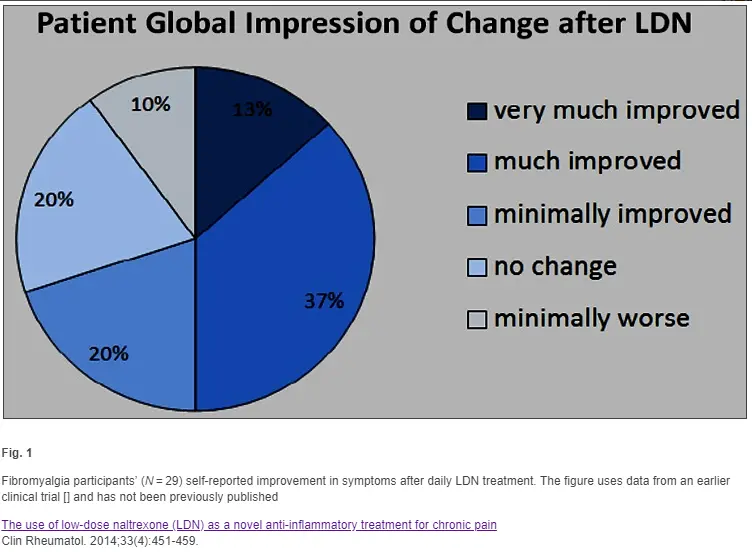
(Image: this image is from a small study done on patients with fibromyalgia and not Hashimoto’s so the percentages do not reflect what I see in my own clinical practice)
This group of people, for whatever reason, may not be responding to the LDN at all.
If you fit into this category then it may be worth it to adjust your dosing and the time of day that you take the medication.
These small steps might actually make a big difference and should be explored before you discontinue it altogether.
There is also another group of people (percentage unknown but perhaps close to 20%) who do not believe LDN is working in their bodies but notice an abrupt worsening in their symptoms once they stop taking the medication.
Consider this as a warning before you discontinue using LDN.
How to Get LDN
While there are PLENTY of benefits to using LDN, it can actually be somewhat hard to get, but certainly not impossible.
So, how do you get it?
In order to obtain LDN, you MUST get a valid prescription from a doctor.
But, because LDN is not FDA-approved for treating Hashimoto’s, it can actually be somewhat difficult to get from regular doctors.
Doctors including endocrinologists, family practice doctors, and other conventionally trained physicians are often not too keen on writing a prescription for you, even when faced with evidence in the form of clinical studies.
If you work with your doctor and bring in the clinical studies that show that this medication can be effective, then you run a higher chance of getting a prescription.
Remember, though:
Do not argue with your doctor or become angry or frustrated. This response will almost always result in even more pushback from your current doctor.
If you can’t find a conventionally trained doctor who will prescribe it for you then you may have to look into alternative or integrative doctors.
These doctors are much more open to using medications such as LDN.
You can find them by searching for doctors who specialize in integrative medicine, functional medicine, and anti-aging medicine.
You might also find success using Naturopaths but only if they can prescribe in your state (I believe there are about 22+ states that allow them to prescribe medications (8) at this time but feel free to correct me and provide more accurate info in the comment section).
I have a list of tips and tricks that can help you find a doctor to help with your thyroid here.
Other Uses for LDN
LDN is also one of my personal favorite medications to use for those with thyroid disease because of its effects on metabolism and weight management.
I find that the majority of hypothyroid patients, which includes those with Hashimoto’s, also seem to have trouble losing weight and keeping it off.
This makes LDN the perfect combination medication for patients who struggle with both problems.
In fact, I find myself using LDN more for weight management than I do for the autoimmune component of Hashimoto’s thyroiditis.
Regardless of the primary purpose you are using it for, just realize that LDN may have other benefits for your body.
How does LDN help with weight loss?
It’s actually not clear, but it’s probably mediated through a combination of its impact on your hypothalamus (the metabolism control center) and its impact on certain fat hormones such as insulin (and perhaps leptin).
And, what might surprise you further, is that most doctors should know that it does this!
Why?
Because Naltrexone (which is another name for LDN) is one of the two active drugs in a medication known as Contrave (9).
And this medication is FDA-approved for weight loss!
This is important because LDN is not an FDA-approved therapy for treating Hashimoto’s (remember, no such treatment or medication exists for that purpose) which means if you use it for this purpose you are using it off-label.
But using Naltrexone for weight loss is considered FDA-approved (provided it’s used in combination with Wellbutrin which is the other drug in Contrave).
The dosing of LDN for weight loss and for Hashimoto’s do differ, however, so keep that in mind.
You may not notice the weight loss effects at the smaller doses of LDN which are typically used for treating autoimmune diseases.
But be cautious about increasing your dose too high which can also have negative consequences.
Conclusion
LDN is a great medication that can potentially help some people who suffer from Hashimoto’s thyroiditis.
While it isn’t FDA-approved for this purpose, there have been some studies that show that it can help mediate the immune system and help reduce inflammation.
It’s plausible that these effects may also have an influence on autoimmune thyroiditis.
My personal experience suggests that Hashimoto’s can be beneficial for approximately 60% of Hashimoto’s patients who may experience some degree of improvement while using it.
If you decide to use it, be sure to watch for side effects and keep an eye on your thyroid lab tests (both your antibodies and thyroid function tests) as they both may fluctuate.
Now I want to hear from you:
Are you using LDN for your Hashimoto’s?
Do you notice an improvement in your symptoms?
How long have you been taking it?
If you are taking it, how did you get your doctor to prescribe it?
Leave your questions or comments below!
Scientific References
#1. https://www.ncbi.nlm.nih.gov/books/NBK285557/
#2. https://www.ncbi.nlm.nih.gov/pmc/articles/PMC3962576/
#3. https://www.ncbi.nlm.nih.gov/pubmed/29885638
#4. https://www.ncbi.nlm.nih.gov/pubmed/24558033
#5. https://www.mayoclinic.org/drugs-supplements/naltrexone-oral-route/proper-use/drg-20068408
#6. https://www.ncbi.nlm.nih.gov/pubmed/24526250
#7. https://www.ncbi.nlm.nih.gov/pubmed/29377216
#8. https://aanmc.org/resources/licensure/
#9. https://contrave.com/how-contrave-works/
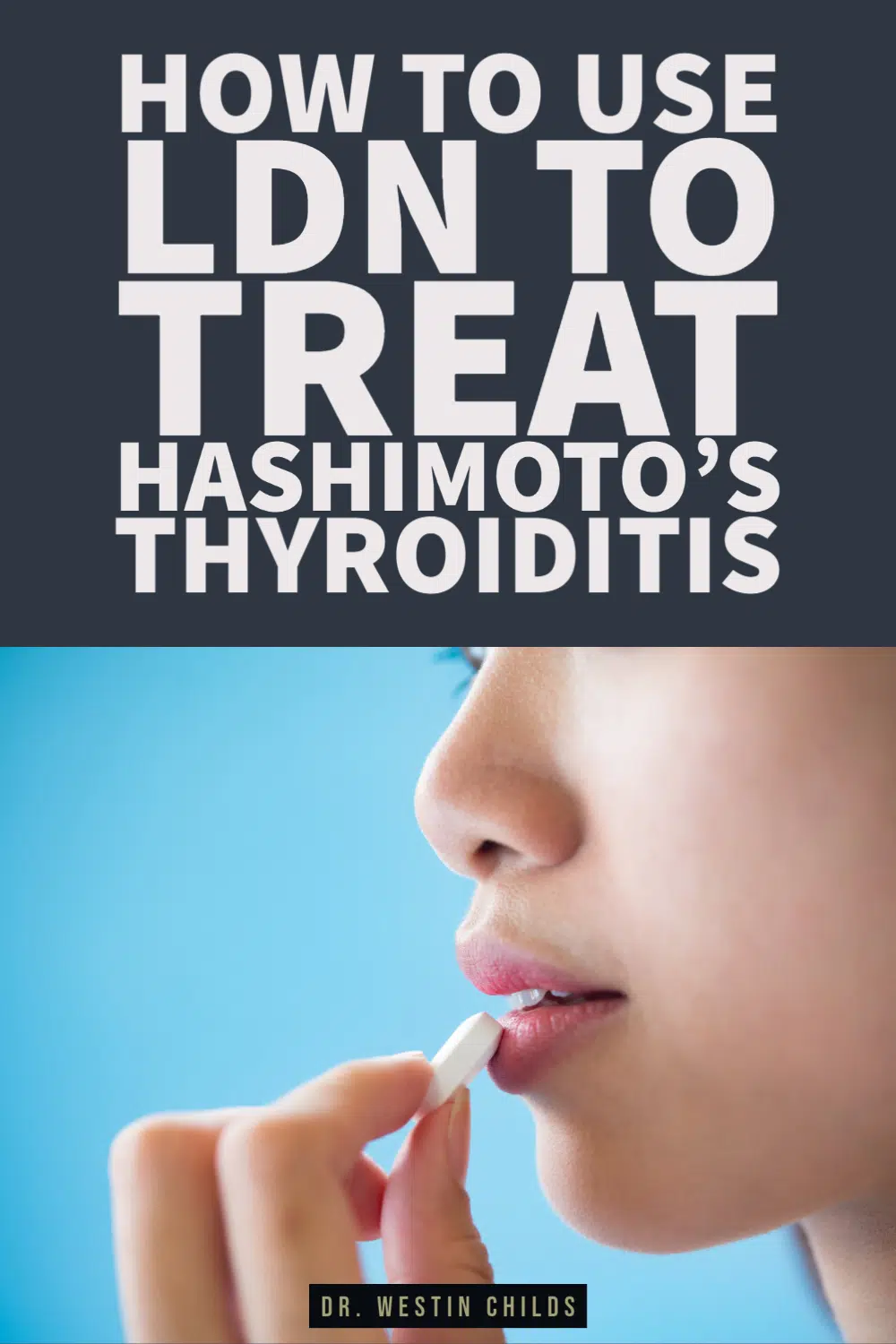
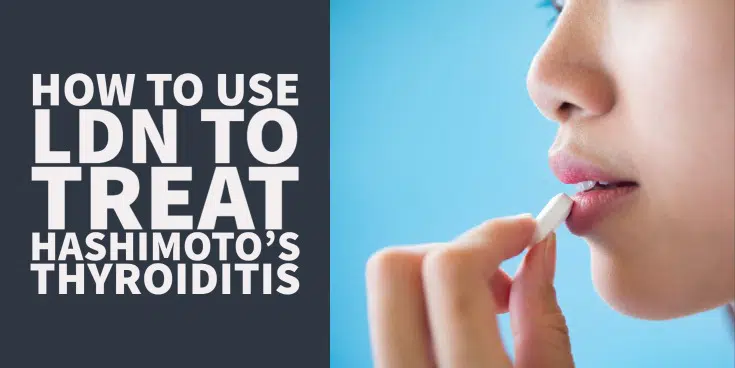

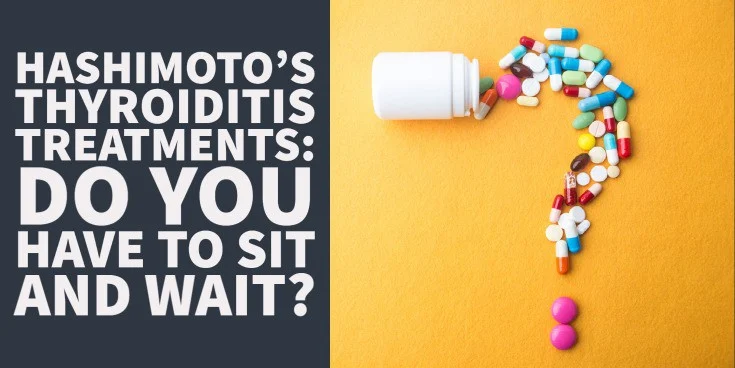

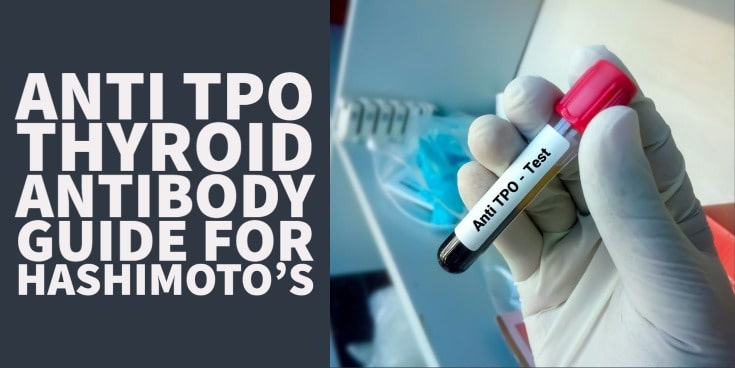
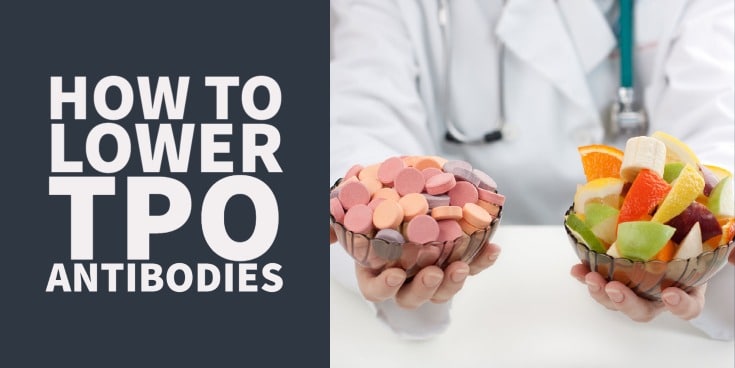
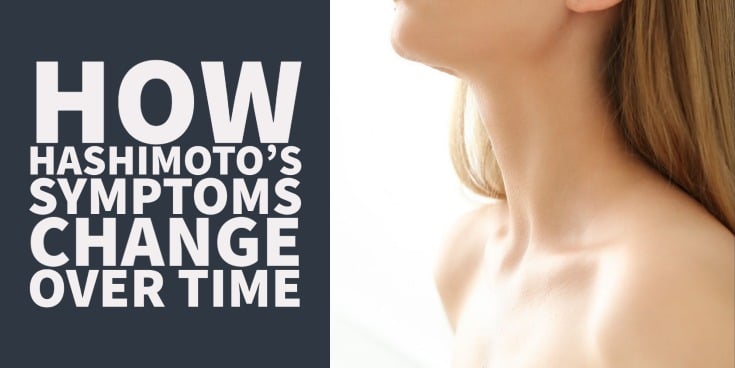
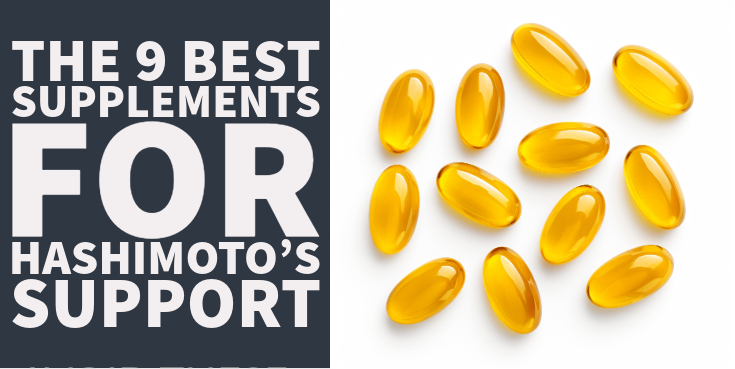

Another great article, Dr. Childs. My recent blood work showed all my thyroid labs were ok, except my Reverse T3 was fairly high at 24 and I still feel “out of it” some days like I’m living in slow-motion and experience muscle pain off and on. I’ve been on 30 mg of Armour Thyroid, which drastically improved my debilitating condition before. My doctor prescribed LDN 1.5 mg to help bring down any inflammation and hopefully RT3. She wanted to try that as a first order of treatment prior to raising my T3 dosage. I’ve been taking it for a few days and I can point to a “general feeling of wellness” and not feeling like I am living in slow-motion, if that makes any sense. I’ll report back on my treatment after my next blood work to see if it did reduce the RT3 and help with overall pain. Thank you again for writing about LDN. I had never heard of it prior to reading it in your blogs.
Hi Dsharp,
Thanks for sharing! I wouldn’t really count LDN as a direct treatment for high reverse T3 though it can help indirectly. It can potentially help with the inflammation/pain, however. But please do keep us updated on your progress!
Thank you for that info, Dr Childs. I have been a little sensitive to higher Amour doses (extreme perspiration), so my doctor is a little hesitant to increase T3, although I’m not sure if that’s a function of T3 alone or the drug itself. Would love any other thoughts you might have on treating high RT3.
You can find tons of information on that topic here: https://www.restartmed.com/reverse-t3/
In case this can help anyone:
Happy to report back after 1 month on LDN. TPO Antibodies have come down further and in the single digits. The most important change I have noticed is a marked improvement in body pain and sleep. I am able to get deep sleep, in a way that I haven’t in a long time and wake up feeling refreshed. The body pain at the start of my journey (keto induced hashimotos thyroiditis) was a 7-8 (yes, that bad) is now <1. The brain fog hasn't disappeared a 100%, but my doctor is still working on correcting my estrogen & progesterone balance and hoping that will address it.
My daily treatment so far: 30 mg Armour Thyroid. 1.5 mg LDN, Zinc 30 mg, Selenium 100 mcg, S acetyl Glutathione 200 mg, Turmeric, Calcium D Glucarate 3000 mg. I am gluten & soy free. I do consume organic dairy – no intolerance.
Forgot to add: TSH is 0.68 (about the same), FT3 is 3.8 (improved), RT3 has dropped from 24.8 to 8.0 (markedly improved)
BuyLDN by SUKI is advertising that you can LDN order from them directly
without prescription. Is that legitimate???
I have used LDN in the past year. It worked wonders for eliminating all pain. However, after using it for a period of time I begin to have symptoms of muscle cramping. I will try it again and keep it at 1.5 and see what happens. The hardest part about all of this is getting my thyroid med (Tirosint Sol 75) estradiol and testosterone working to get my energy levels to some normal capacity. I had a total hysterectomy and then my thyroid tanked! Thank you for all you do to bring this information to us.
Hi LCo,
You’re welcome! Keep us updated on your progress. Also, be sure to check your magnesium as low magnesium can contribute to muscle cramps.
I had hypo that changed to hyper. My TSH remains high even though they lowered my meds. I developed a form of Vasculitis and was put on steroids to lower the inflammation in my body. I’m off of them now. The Tsh was still high the last time I was tested. I cannot get the weight off from the steroids and the thyroid meds being lowered would this help me? Will you email me please
Hi Kay,
As far as weight loss is concerned, LDN is better when combined with other therapies as opposed to using it on its own. It likely wouldn’t hurt but it probably wouldn’t cause significant weight loss unless you are also doing other things.
Are you using LDN for your Hashimoto’s? Yes, My Doctor prescribed it as you explained above. I started at1.5mg and worked up to 4.5 mg.
Do you notice an improvement in your symptoms? Yes, another bonus was that I have lost 19 lbs.
How long have you been taking it? I have been taking LDN for 4 months.
If you are taking it, how did you get your doctor to prescribe it? My doctor suggested I go on LDN.
Hi Paul,
Great! Glad it’s working for you and thanks for sharing.
As a Hashimotos patient that suffered from instant weight gain of 3 kg after every bout of major stress, LDN 4.5 mg was used daily for the past 6 months. It worked extremely well for the first 2-3 months, reversing the instant weight gain of 3kg & regulating the sleep cycle. However after antibiotic treatment with the last UTI, LDN “stopped working” with the weight loss & alcohol intolerance returned. “Stopped working” in this context means weight loss plateaued & appeared to cease. So is LDN’s effectiveness also linked to gut biota/liver dysfunction & other hidden body inflammations like UTI’s also?
Hi Minime,
I would say it’s probably more related to the fact that while LDN can help with weight loss it’s not an ultra-powerful weight loss medication. Instead, it’s much more likely that other conditions are contributing to your weight and those issues must be addressed for further weight loss.
Your antibiotics might have killed off good gut bacteria and encouraged growth of Candida Albicans or other species (bad yeast that results from exposure to mold, or decreased immune health and gut dysbiosis). There is some information that says that LDN is not effective if you have these other yeast infections/overgrowth in your gut. Also, If you have alcohol intolerance, you might want to check out Mast Cell Activation Syndrome. It is often associated with Ehlers Danlos Syndrome, which for many, including myself, is the root cause of autoimmune conditions, like Hashimoto’s.
Great information Dr. Child’s, I have an appointment next week with my endocrinologist. She never validates my symptoms. I’m 44 and her reply is that is due to my age. Any advice as to how to convince her to prescribe LDN?
Hi Maria,
My general advice is to always seek out a physician who is willing to work with you. It’s far easier to find someone to work with you than it is to convince your doctor to do something they aren’t comfortable doing or don’t want to do. You can find resources here: https://www.restartmed.com/thyroid-doctor/
Thank you! I will definitely do that.
Since I had my thyroid removed in 2014 due to multi-nodule goiter and subsequent Hashimoto diagnosis, would this still be beneficial for me? I can see several areas that it could help, just not sure about it.
Hi Beverly,
The answer is almost always “it depends”. In terms of helping with Hashimoto’s, it will obviously be limited due to the fact that most of your thyroid is removed but it also has other effects and benefits outside of its impact on thyroid function. So it really depends on your other symptoms and other conditions.
I have a prescription for LDN from my Naturopath . I took it briefly last year and I was then able to open the door to begin losing weight while lowering my TPO antibodies. Problem is it made me slightly nauseous and gave me headaches. I have vertigo so this is bothersome. I am looking to try again. What is the best time of day to take LDN? Is taking with food recommended.?
Antoinette,
I now take LDN right before I go to bed, usually about 2-3 hours after dinner. At the beginning, I did take it on an empty stomach in the morning (because I was taking my thyroid meds at night) and I did have really bad nausea lasting till mid morning. Try taking it at before bed and if that doesn’t help, try a different compounding pharmacy, sometimes the fillers create stomach problems that manifest as nausea.
Are you using LDN for your Hashimoto’s? Yes, My Doctor prescribed it as above explained. I started at 1.5mg and worked up to 4.5 mg, I am on this medication for almost two years now.
Do you notice an improvement in your symptoms? Yes, my cold/flu symptoms that frequents are gone for good.
If you are taking it, how did you get your doctor to prescribe it? I had to convince my doctor to put me on LDN. I used some of your articles that mention it plus some health articles I found on the internet. Unfortunately, in my case, the desirable side effect of weight loss didn’t happen.
Thanks, for your constant help.
Hi Rose,
That’s great! I’m glad it is at least helping somewhat. Thanks for sharing.
I have been following your web site with much interest. Lots of good info.
Are you using LDN for your Hashimoto’s? Not currently but I have some LDN that I purchased previously and never used. I am going to try adding it to what I currently take.
If you are taking it, how did you get your doctor to prescribe it? I did not ask my doctor. I purchased over the web from theantiaging.store.
Would adding LDN allow one to reduce their Armour dosage?
Hi Sfolly,
It might help you reduce your dose but I wouldn’t necessarily count on that.
So do you think that LDN helps with leptin resistance?
Hi Sarah,
Yes, it can potentially help, depending on the scenario.
Hello,
I have only been taking LDN for three weeks now. The first two weeks were 1.5 and I’m now up to 3mg. I have noticed the vivid dreams and lack of sleep and also the headaches that seem to have increased since taking the LDN. I haven’t noticed any differences in the joint pain, but would like to give this more time. So given the “side effects” that I’m experiencing I have a few questions…1. Would you recommend that I switch to taking the LDN to the morning along with my Synthroid or should I consider a different time? (I currently take before bed). Question 2. How long does it generally take before I start to notice any benefits? Questions 3. I have also noticed an increase in my mouth with canker sores ( I know that this generally means I’m fighting off illness)…how is this related to the LDN and do I need to just give my body more time to adjust? I won’t be getting my blood work done until after the new year. I’ve been fighting this disease for so many years…I’m frustrated and sometimes lack the patience that I need.
Any help would be appreciated!
Thanks,
Amy
Did you get any help with this?
Dear Dr. Westin,
First of all, I’d like to thank you so much. Although you are so very far away from me, I’m from Brazil, you changed my life.
A brief story about me, I’m 61, 6ft3, and was weighing 310 lb when I first read one of your articles about thyroid and Hashimoto.
I have Hashimoto and something caught my attention at that time, my doctor for years only checked my TSH and T4 and prescribed me Puran T4. I realized that this is a wait and see approach or something like that.
I’ve read many articles about LDN therapy and searched for a doctor that knows about it. For my luck, I found a doctor who performed many clinical studies with LDN.
On my first consult, I had mentioned about other thyroid markers that I’d read on your article “Thyroid Lab Tests (Optimal Ranges vs Normal Ranges & Where you Want your Labs to be)”, and the doctor checked all of them.
All markers were out of range and also my PCR was very high.
Not only he started with LDN at 3mg but also prescribed me with a lot of vitamins and minerals: Selenium, Zinc, Copper, Magnesium, Manganese, Boron, Chrome, Potassium, Astaxanthin, L-Glutathione, CoQ10, Vit A, Vit B1 B2 B5 B6 B12(Methylcobalamin), Vit D3, Vit E, Vit K2 Mk7, Cod Liver Oil, Omega 3, Coconut Oil … wow! That’s a lot.
Also, he started me with a keto diet and intermittent fasting.
16 months later, now I’m weighing 230lb, 80lb less, markers are OK, not optimal ranges, but OK. My quality of life is way above my expectancies and I thank you for that, you put me in the right path. Thanks again.
Sincerely yours
Carlos Carvalho
Hi Carlos,
That’s amazing! Thank you for sharing your story and your success. I know it helps other people to know that it’s possible. Keep up the good work!
I’m male, 73, 6’/190lbs. I was diagnosed with Hashimoto’s about 20 years ago – I was never tested for antibodies; the diagnosis was based on TSH and T4/T3 levels. I’ve been taking levothyroxin ever since, starting at 175mcg and gradually lowering it to the current 112mcg as TSH stabilized. Now my standard test is of TSH and sometimes free T4. TSH has usually been in normal range (after going too low for a while).
Suddenly last month (Sept. 2020) TSH jumped 50% to 6.69 (from 4.24 a year ago – my PCP doctor doesn’t believe in frequent testing), though free T4 was 1.43 (range 0.82-1.77). On the results printout my doctor wrote “stable and acceptable.” I don’t know about acceptable but it certainly isn’t stable.
So after a month on my own I had it tested again – TSH was 6.3; I didn’t test free T4 but for the first time I had myself tested for ATA and TPA – ATA: 1,123.2 (yikes! range 0-0.9); TPA: 43 (range 0-34). Is 1,123 ATA even possible?
I’ve been taking 450mg of SR Wellbutrin for about 20 years and it works well on depression. I’ve still gained about 10+ pounds partly because of lack of exercise (don’t feel motivated, partly due to arthritis pains everywhere) and not cutting down on calories. In the last month I’ve replaced my usual dinner with a protein drink I have every morning and some yogurt, and still managed to lose only 5 pounds at most. (I surfed and cycled for 40 years, then began walking for miles, so I’ve always had excellent lung/heart capacity, but now my lungs are working at about 75% of expected and I’m out of breath climbing stairs, though not while walking on flat surfaces.)
My questions: is it too late for LDN to do any good? Also, I need my immune system because I’ve had low-grade prostate cancer for 12 years (and of course covid is out there too), so I’m concerned about suppressing my immune system. I do get flu, pneumonia, and shingles vaccines. Should I be seeing an endocrinologist? Many thanks for any insight.
I have been taking LDN for a month now. I’m at 1.5 mg right now and will slowly titrate up. This has already been life changing for me! I was at the point of feeling very hopeless when my endocrinologist suggested I take it. It’s been a total game changer. Even though there is room for improvement which I’m confident will happen with more time, I’m functioning again!
My side effects have been tolerable. I have had some headaches and a little insomnia. But it’s relieving my constant debilitating fatigue and body aches. Thanks for this great article!
I’ve been taking LDN off and on for three years. After nearly 15 years of treating Hashimoto’s with Naturethroid, my integrative MD suggested that I supplement with LDN in 2018. He started me at 3.0, and honestly, I never felt better in my life. I had energy, my mood was great (no anxiety, no depression). I thought it was a miracle drug. Then Naturethroid changed in 2017-2018. I began to get hypo symptoms again, but didn’t know about the Naturethroid change, so my doc and I presumed it must be the LDN. He reduced my LDN dose to 1.5. As most hypothyroid patients are aware, the changes to most NDT medications have been extreme over the past two years. I’m now taking Armour 45 mcg per day and 1.5 LDN. In November 2020 for the first time since 2014, I was positive for TPO antibodies. My new functional medicine doc thinks it may be an additive/filler in Armour since I’ve only been on that for 3 months. (My antibody tests were < 1.0 in July.) I've recently begun to notice insomnia, which I believe is from the LDN. I've skipped a night intermittently and found that I sleep better without it, but my energy and mood are lower without LDN. Would you recommend that I not take the LDN at bedtime? I take the Armour first thing in the morning.
Thanks for your help.
Hello Dr. Childs,
Thank you for your site, very reassuring. I have been recently diagnosed with underachieve thyroid by traditional endocrinologist, and scanned to reveal nodules. I am not on any medication as yet. After two blood tests 12 month apart my free T4 was 11.0 then 7.7, TSH from 11.32 to 9.90.
TG are currently 149, and TPO 1300.
First test total cholestral 8.3, second 7.0.
LDL Chol 5.9 then 4.7
Non HDL 6.4 then 5.2.
I believe cholesterol is related to Hashimoto’s.
I am currently self medicating as I know my doctor is traditional and have a two month window to alter my bloods.
I have changed my diet to palio, one red grapefruit a day, Increased pure water intake, magnesium, selenium, vit D3. Vit C, fish oil, and ultra blend for gut. I have not put on weight and have few symptoms only an ache in my shoulders which comes and goes and insomnia which I put down to not drinking alchohol for three months, withdrawal I expect.
I am planning to go along with this doctor to obtain the required tests, watch and see seems what he is doing and in the meantime I seek your advice to help bring down my TSH level. Thank you in advance and thank you for BEING.
Does anyone know if LDN is taken for life or only until desired results obtained?
Hi Sabra,
It can safely be used indefinitely. You don’t necessarily have to continue using it forever, though.
Hi Westin.
I recently changed meds from Levothyroxine to NDT, and my new doctor has also suggested LDN, so here I am reading up on it. Thanks for the information – the possible benefits of adding LDN to the mix certainly seem worthwhile to me.
Would you please explain why antibodies levels may not budge on LDN if inflammation is reduced? Also – because us Hashi’s-sufferers always seem to be on a trek to uncover the elusive aggravators behind the disease – will “artificially” reducing inflammation via LDN somehow (negatively) obscure that search? For example, if there’s an underlying dietary or environmental toxin at play…..
Thanks heaps.
I would like to know the answers to this as well!
I was originally prescribed LDN through my RGCC program (Greece protocol for cancer) . I crush a 50 mg tablet and add it to 50 ml of water. So easy to dispense 4.5 ml nightly through a syringe. Unfortunately my TPO level has risen (other triggers probably at fault) and while I don’t feel any different I have lost weight and kept it off. I’ve only been on LDN for 4 months but will continue to take it if only for anti cancer benefit.
Hi Susan,
The weight loss benefit is usually only seen when combined with diet, exercise, and fasting.
Can you consume alcohol while taking LDN?
My Endo suggests I read about taking LDN in addition to my Thyroid medication for Hoshimoto.
Hi Ann,
Naltrexone was originally designed to treat alcohol dependence so it probably would not be a good idea to consume both.
Thank you for this!
It confirms what I am feeling.
My Thyroid goblin is 1000 and I have felt both lows and currently a high-hyperthyroidism.
I do feel I am in the small percentage that may be BOTH Graves/Hashimoto.
My levels (T3 & T4), I’m told are showing within range. I have 3 nodules on my thyroid. 1.2 cm
No treatment, I currently do VERY low carbs (only from berries/nuts/low carb veggie) and no sugar. I do eat full fat dairy (heavy cream) and cheeses. Also chicken, beef and pork. Celiac as well.
I also consistently have low Vitamin D which I am currently taking. Currently up to 35 (past usually 15)
Any other Suggestions. I have also had neuroendocrine carcinoid and have been clean 4 years.
Blessings to you!
53 year old female (Hysterectomy full (NO hormone treatment) 2004
Maybe LDN is what I need to try, I do have a sensitive system for meds, meaning a little goes a long way.
Thanks Again!
Hi Teresa,
You can find a list of additional natural treatments that may help reduce thyroid antibodies here: https://www.restartmed.com/tpo-antibodies/
I have been using LDN and it’s the only thing that has helped bring down my TPOs into double digits from almost 200.
Hi Danielle,
Glad to hear it worked well for you!
I am curious if you can take LDN at the same time (of day) as natural desiccated thyroid? I know you have to space out many of the supplements from your thyroid supplement, but it would be awesome to know which supplements I can take together with my thyroid 🙂
Hi Erica,
You wouldn’t want to take anything at the same time as your NDT with the exception of T2, if you are using it.
So I am absolutely lucky in the fact that my OBGYN has hashimotos. I don’t mean lucky for her but lucky for me because obviously it’s a passion of hers for her patients. Although she isn’t a naturopath herself as her type of medicine doesn’t allow her the time to dive into those practices and she has to pay the bills by focusing on delivery babies, she is open to working in conjunction with those types of doctors. She does have me on 225 mg of Synthroid per day (she told me my thyroid was more picky and didn’t like the levothyroxine as much so I need to use name brand) but also suggested I use LDN. I did take it for a while but then thought nothing was happening so I went off of it. After looking at my labs she told me to go back on it which I did and now have been on it for an extended amount of time of several months. I actually went on vacation in September and didn’t get it filled and wasn’t taking it for a month or so and totally noticed my energy levels became lower. I’m definitely one of those people that doesn’t always notice anything while I’m on it but definitely noticed changes when I didn’t take it for a bit. I do think it takes several months though like stated in the article. I don’t notice any weightloss but I do think it makes me want to drink less alcohol. Not saying I’m a huge drinker but when taking the LDN the desire is less altogether which I like. I did have vivid dreams but those went away after a few weeks and I did get headaches with the 4 or above so I’m on 3.5. My whole life I’ve struggled with my weight and I generally used to put on weight easily but could also lose weight easily if I focused on diet and exercise. Instead of a freshman 15 I put on a freshman 70 and never really recovered from that because I didn’t have a consistent healthy lifestyle but at times when I did I could lose 20-40 pounds. I would of course have something happen and not keep up with the gym etc and put it back on but it wasn’t impossible. Actually some months before I was diagnosed with hashimotos I lost 30-40 pounds but I read that actually happens sometimes before the more severe part of the disorder kicks in. Since taking Synthroid however I have found weightloss very
difficult even now that I am weightlifting with walking and a few shorter intense cardio bursts per week. I also try to eat 80-90% healthy and do the 8/16 hour IF as much as possible. Not necessarily putting on tons of weight but not able to lose with the same techniques I used to. I did start taking the leptin resistance and T2 a few weeks ago however and maybe it’s a placebo effect but my appetite immediately decreased. I’ve been getting full so much faster! I think the lepton resistance is going to be key for me. Although LDN didn’t necessarily help with weightloss I think it helps decrease alcohol consumption so that will be helpful for that goal as well. It’s not a magic pill and takes several months but it definitely helps keep my energy up as well.
Hi Megan,
Agreed on that it’s not a magic pill, but there really is no such thing outside of the perception that some patients have created in their own mind. That said, it certainly has value and use for the right person in areas of inflammation reduction, weight management, and thyroid management. For these reasons, it’s almost always worth a shot.